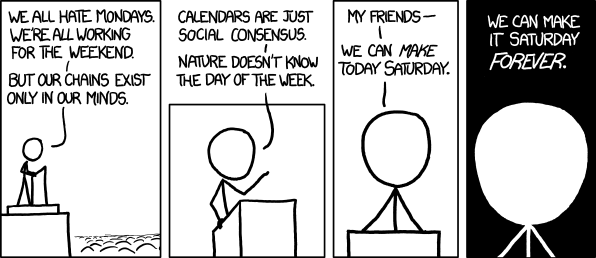It seems I'm in book-announcing mode this week. Today marks the release of three books from *Jacobin* magazine's [collaboration](http://www.versobooks.com/series_collections/112-jacobin) with Verso Books. The trio includes Benjamin Kunkel's *Utopia or Bust* (slightly silly profile of Kunkel [here](http://www.vulture.com/2014/03/benjamin-kunkel-marxist-novel-utopia-or-bust.html)), Micah Uetricht's *Strike For America* (excerpt [here](https://www.jacobinmag.com/2014/03/uncommon-core-chicago-teachers-union/)), and Melissa Gira Grant's *Playing the Whore* (excerpt [here](http://www.thenation.com/article/178683/lets-call-sex-work-what-it-work)). I have my own contribution to this series planned for the future, but more on that later. For those in New York, the launch [event](https://www.facebook.com/events/1394747350786910/) is on Wednesday the 12th.
The books are all worth your time. But I want to especially highlight Melissa's which I think is an incredibly important work. I'm proud that for some time now, *Jacobin* has been consistently putting forward an alternative to the dominant narratives about sex work. I may have been [first](https://www.jacobinmag.com/2012/03/the-problem-with-sex-work/) to write there on these issues, but that was only opening the door to people far better versed in these issues than I, like [Melissa](https://www.jacobinmag.com/2012/08/happy-hookers/) and [Laura Agustín](https://www.jacobinmag.com/2013/08/prostitution-law-and-the-death-of-whores/).
*Playing the Whore* synthesizes a huge body of theory, research and activism by and for sex workers. But I hope it doesn't get pigeonholed as being about sex, or about sex work, or about feminism, though it is about all those things. There's a huge wealth of insight here about the meaning of contemporary labor, and the many complexities of trying to develop new identities that make class politics possible.
Crucially, the book reorients discussion of sex work in the direction of class politics more generally, and away from dehumanized narratives of victimization or the overwrought feelings of would-be middle class saviors. As Grant says toward the end of the book: "There's one critical function sex worker identity must still perform: It gives shape to the demand that sex workers are as defined by their work as they are by their sexuality; it de-eroticizes the public perception of the sex worker, not despite sex but to force recognition of sex workers outside of a sexual transaction".
Rather than attempt my own clumsy summary, I'll just tease you with more of Grant's own words. Here are some of the lines that stood out to me from each of her ten chapters, which I hope will encourage others to pick up the book and delve into the rich context that motivates them.
* **"The Police"**: "Rather than couching crackdowns on sex work as fighting crime, now some feminists appeal to the police to pursue stings against the sex trade in the name of gender equality. We can't arrest our way to feminist utopia, but that has not stopped influential women's rights organizations from demanding that we try."
* **"The Prostitute"**: "since the middle of the seventies, 'prostitution' has slowly begun to give way to 'sex work.' It's this transition from a state of being to a form of labor that must be understood if we're to understand the demands that sex work is work . . . the designation of sex work is the invention of the people who perform it."
* **"The Work"**: "All that is intentionally discreet about sex work . . . are strategies for managing legal risk and social exclusion and shouldn't be understood as deceptive any more than the discretion and boundaries a therapist or priest may maintain. But this necessary discretion warps under the weight of anti-sex work stigmas and policing."
* **"The Debate"**: "Is this the real fear then: not that more people are becoming prostitutes but that the conventional ways we'd distinguish a prostitute from a nonprostitute woman are no longer as functional?"
* **"The Industry"**: "To insist that sex workers only deserve rights at work if they have fun, if they love it, if they feel empowered by it is exactly backward. It's a demand that ensures they never will."
* **"The Peephole"**: "Surveillance is a way of knowing sex workers that unites the opportunity for voyeurism with the monitoring and data collection performed by law enforcement, by social service providers, or by researchers."
* **"The Stigma"**: "Naming whore stigma offers us a way through it: to value difference, to develop solidarity between women in and out of the sex trade. . . . Whore stigma makes central the racial and class hierarchy reinforced in the dividing of women into the pure and the impure, the clean and the unclean, the white and virgin and all the others."
* **"The Other Women"**: "Sex work informs their analysis of sexualization not because sex workers' lives are important but because sex work makes women who don't do it feel things they prefer not to feel. It is the whore stigma exercised and upheld by other women."
* **"The Saviors"**: "For those working in the antiprostitution rescue industry, sex workers are limited to performing as stock characters in a story they are not otherwise a part of, in the pity porn which the 'expert' journalists, filmmakers, and NGO staff will produce, profit from, and build their power on."
* **"The Movement"**: "Without its student liberation movement, its black liberation movement, its women's liberation movement, and its gay liberation movement I can't imagine San Francisco birthing a prostitutes' rights movement from a houseboat docked Sausalito."


